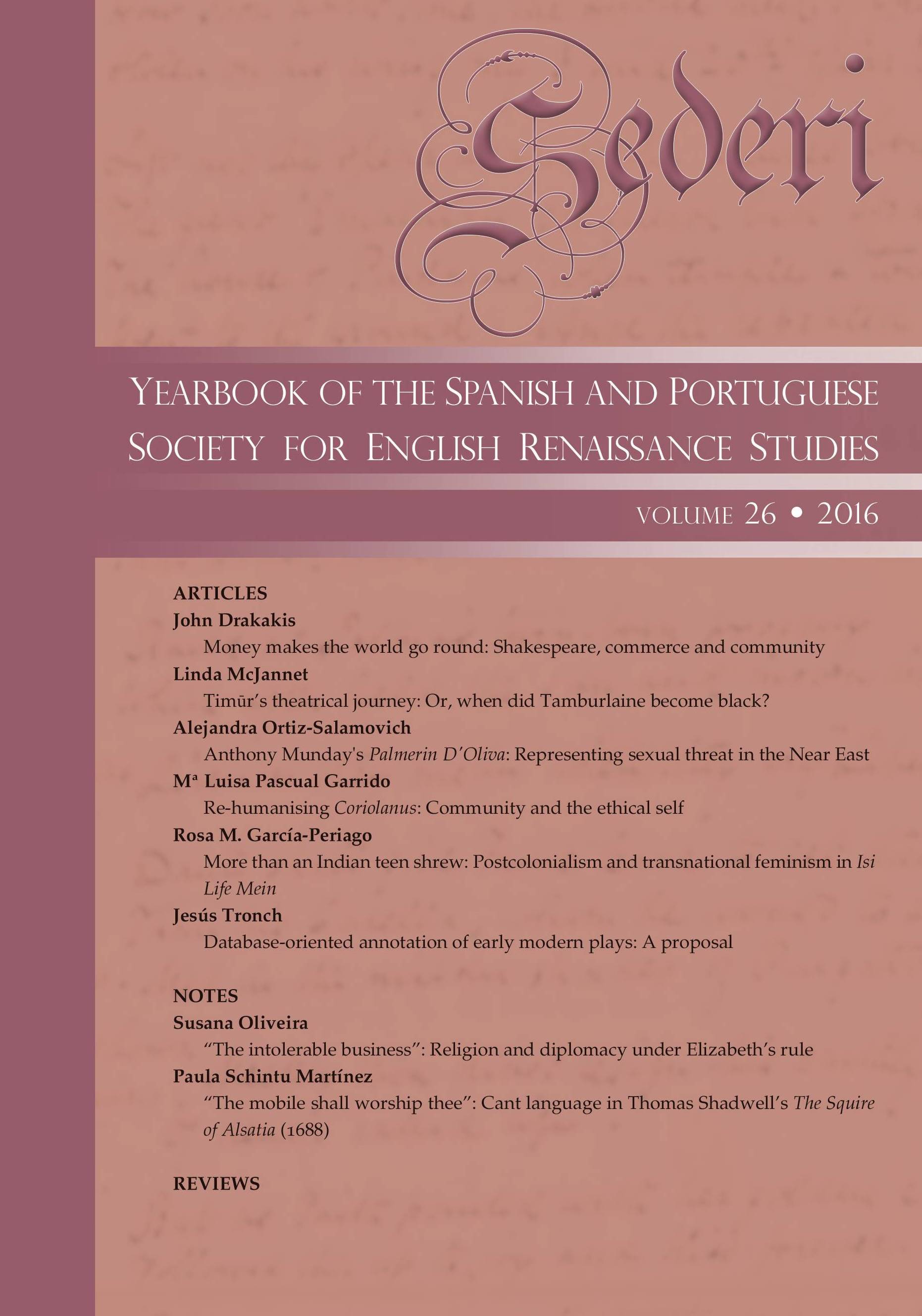"The intolerable business": Religion and diplomacy under Elizabeth's rule
Abstract
Within the scope of the foreign affairs between Portugal and England during Elizabeth’s rule, numerous events indicate the challenges faced by the Portuguese ambassadors in their missions. Regrettably, little is known about these envoys and one rarely finds any reference to their names or their diplomatic accomplishments in Early Modern studies. This paper focuses on a diplomatic incident which involved Francisco Giraldes, a Portuguese resident ambassador in England, aiming to shed some light on “the intolerable business” that opposed this ambassador and the Bishop of London, Edwin Sandys. Attending a Catholic Mass in the context of the Elizabethan Religious Settlement involved certain challenges that should be considered. Diplomats, however, enjoyed certain immunities, including the droit de chappelle, and were allowed to hold Catholic services in their ambassadorial residences. But in March 1573, while Mass was being celebrated, Francisco Giraldes’s residence was invaded by the Sheriff of London’s men, working under the Bishop of London’s instructions. The ongoing tension between the religious and the political areas of power was, thus, exposed. Two letters, written by the Bishop of London, included in the Lansdowne Manuscripts Collection of the British Library, registered the event. As Sandy’s correspondence appears to be the single piece of surviving evidence regarding this diplomatic incident, it stands to reason that its analysis will provide significant insight into the coexistence, as well as the clash, of oppositional forces, while further contributing to aninterpretation of the Anglo-Portuguese affairs in Early Modern times.Downloads
Downloads
Issue
Section
License
The copyright holder of the published contributions is SEDERI.The hardcopy and an open-access version of the journal will be published simultaneously. The issues will be available online in the SEDERI website (http://www.sederi.org/yearbook/) and other repositories that have signed an agreement with SEDERI.
The authors who publish with this journal agree to the following terms:
a) SEDERI retains copyright of the essay.
b) If the author wishes to republish or rewrite the essay for another journal, or include the essay published in SEDERI in their personal repositories, or in any other way, they should contact the editors to obtain permission to do so. This will entail citing SEDERI as the original source and sending the editors a copy of the new version, or the link to the website, in case of online publishing.
The author(s) hereby warrant(s) that:
a) The essay submitted for publication is an original creation and does not infringe any copyright or property right of another journal, author or publisher.
b) The essay submitted for publication has not been previously published, whole or in part, and is not being considered for publication elsewhere.
c) Written permission has been obtained for any material from other sources included in the essay submitted for publication.




